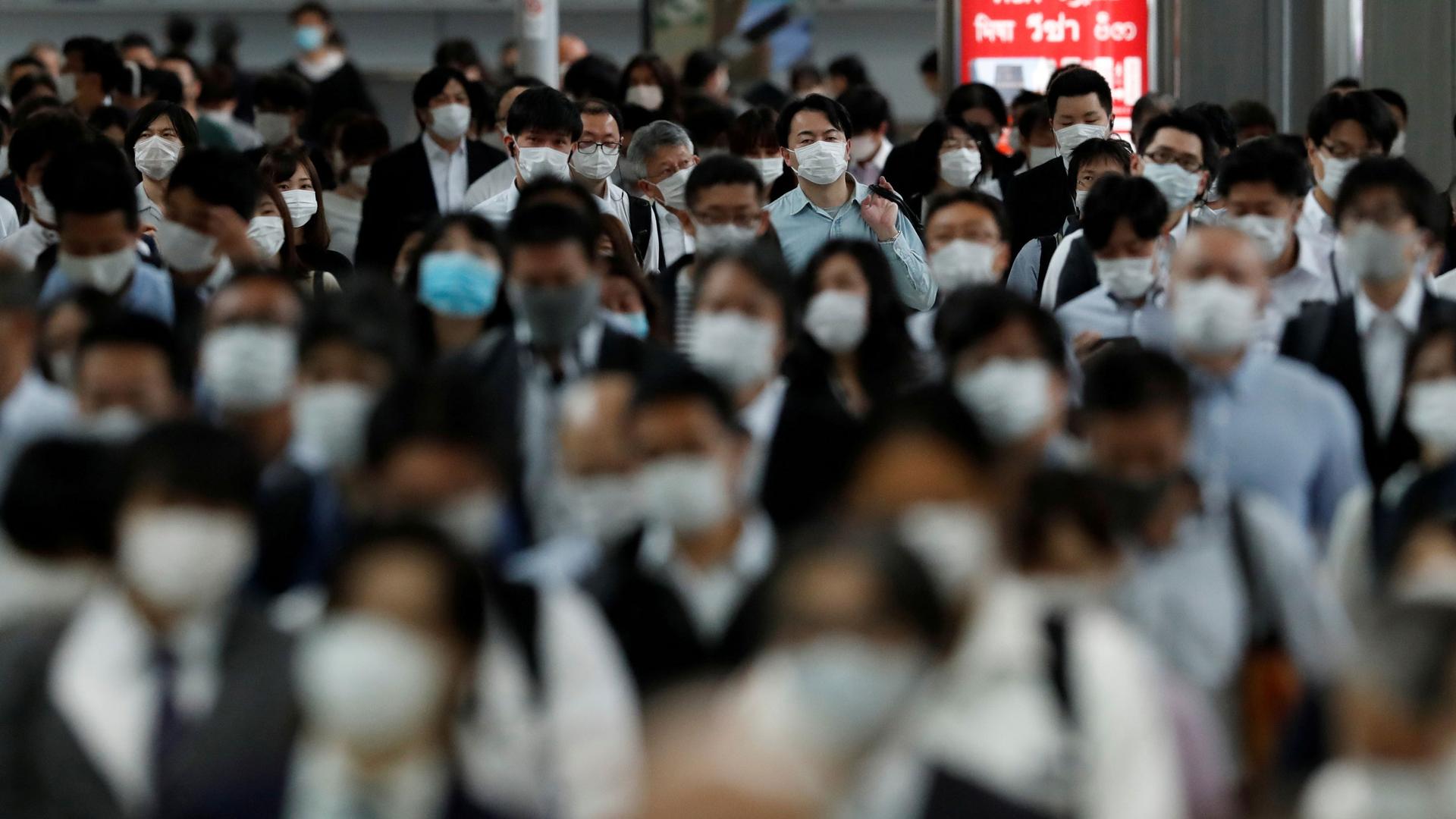Discussion: Stopping the spread of misinformation amid the coronavirus crisis
People wearing protective masks make their way during rush hour at Shinagawa Station on the first day after the Japanese government lifted the state of emergency in Tokyo, May 26, 2020.
Misinformation can undermine critical public health efforts around the world to counter the coronavirus pandemic. Worse, amplified by social media, misinformation has the potential to fuel false conspiracy theories.
Twitter recently announced plans to add labels and warning messages on some tweets with disputed or misleading information about COVID-19 as part of a new approach to misinformation that will eventually extend to other topics.
The company said that depending on the propensity for harm and type of misleading information in the tweet, warnings may also be added to say the tweet conflicts with guidance from public health experts before a user views it.
Facebook, which recently reported a sharp increase in the number of posts it removed for promoting violence and hate speech across its apps, has also put warning labels on about millions of pieces of content related to COVID-19, after taking the unusually aggressive step of banning harmful misinformation about the new coronavirus at the start of the pandemic.
“We have a good sense that these warning labels work. Ninety-five percent of the time that someone sees content with a label, they don’t click through to view that content,” Facebook Chief Executive Mark Zuckerberg told reporters on a press call.
Related discussion: Lessons from the coronavirus pandemic to avert a future crisis
Social media sites are under pressure to combat misinformation that has spread on their platforms about the coronavirus pandemic.
Such false claims have ranged from bogus cures to misinformation linking the virus with conspiracy theories about high-profile figures, such as Microsoft co-founder-turned-philanthropist, Bill Gates, or about 5G mobile phone technology.
As part of our weekly series taking your questions to the experts, The World’s Elana Gordon moderated a conversation with K. “Vish” Viswanath, professor of health communication in the Department of Social and Behavioral Sciences at the Harvard T.H. Chan School of Public Health, who explored the pitfalls of COVID-19 misinformation, as well as approaches to finding transparent and trustworthy information about the pandemic.
Reuters contributed to this report.
Our coverage reaches millions each week, but only a small fraction of listeners contribute to sustain our program. We still need 224 more people to donate $100 or $10/monthly to unlock our $67,000 match. Will you help us get there today?
